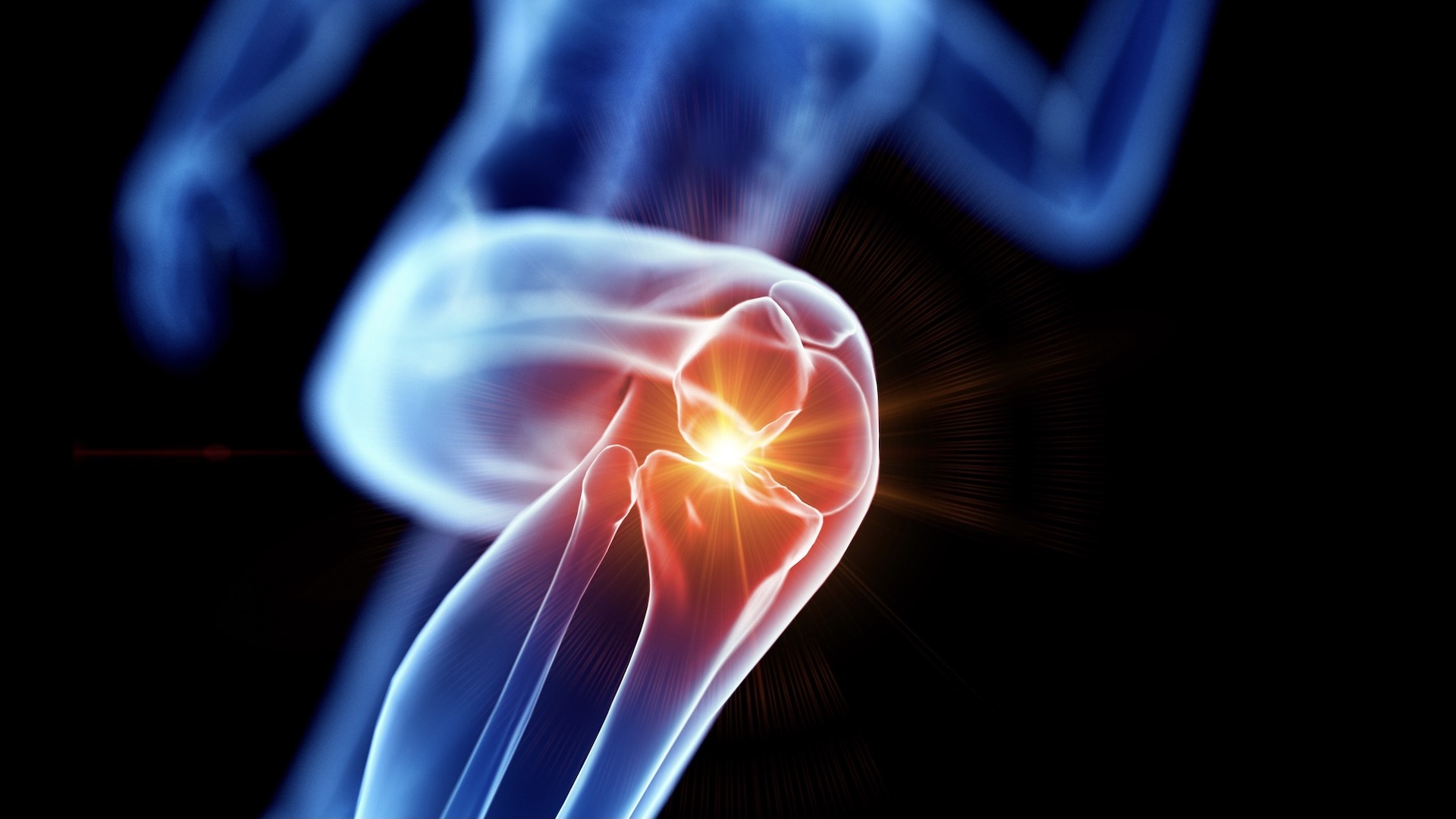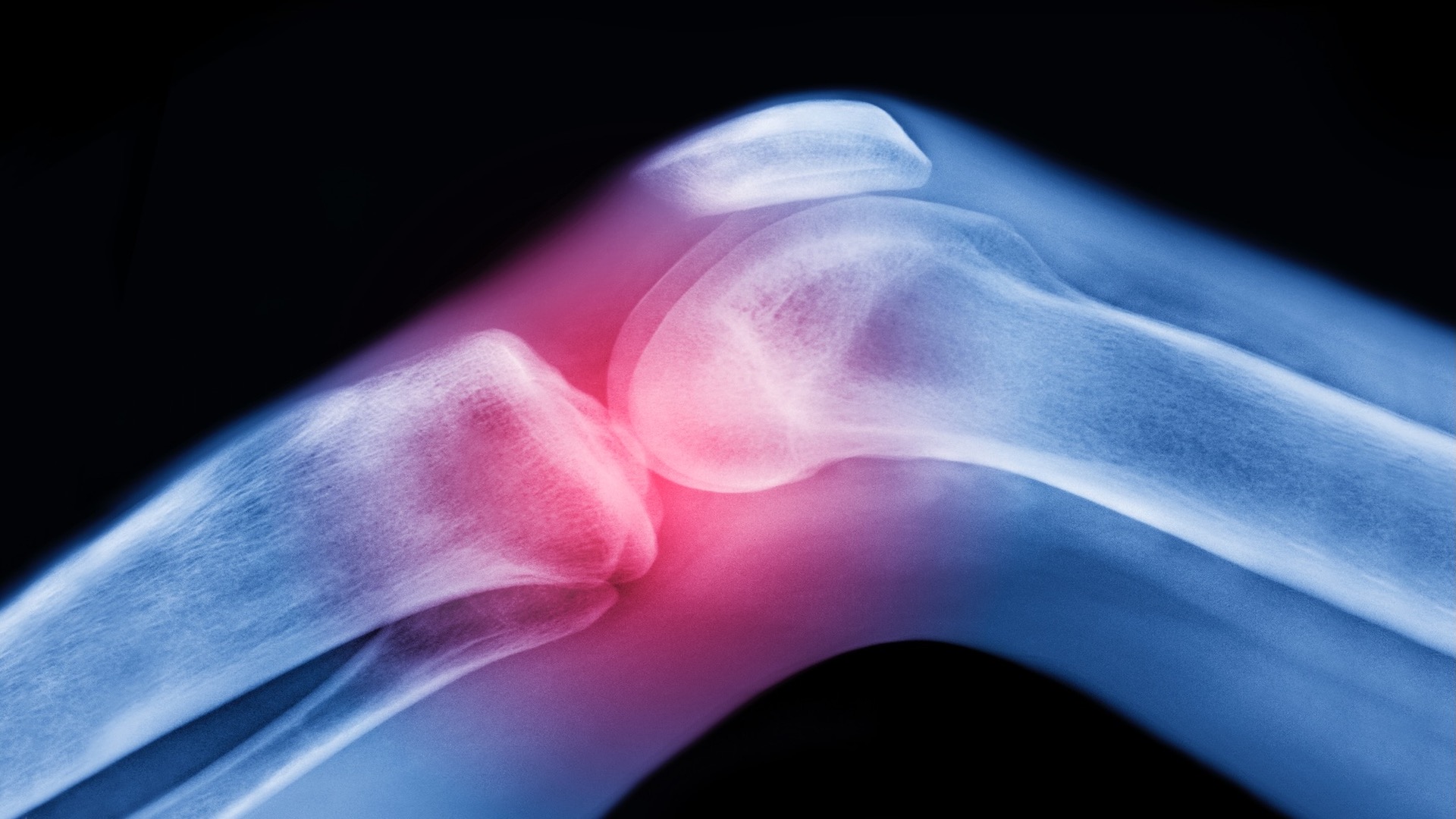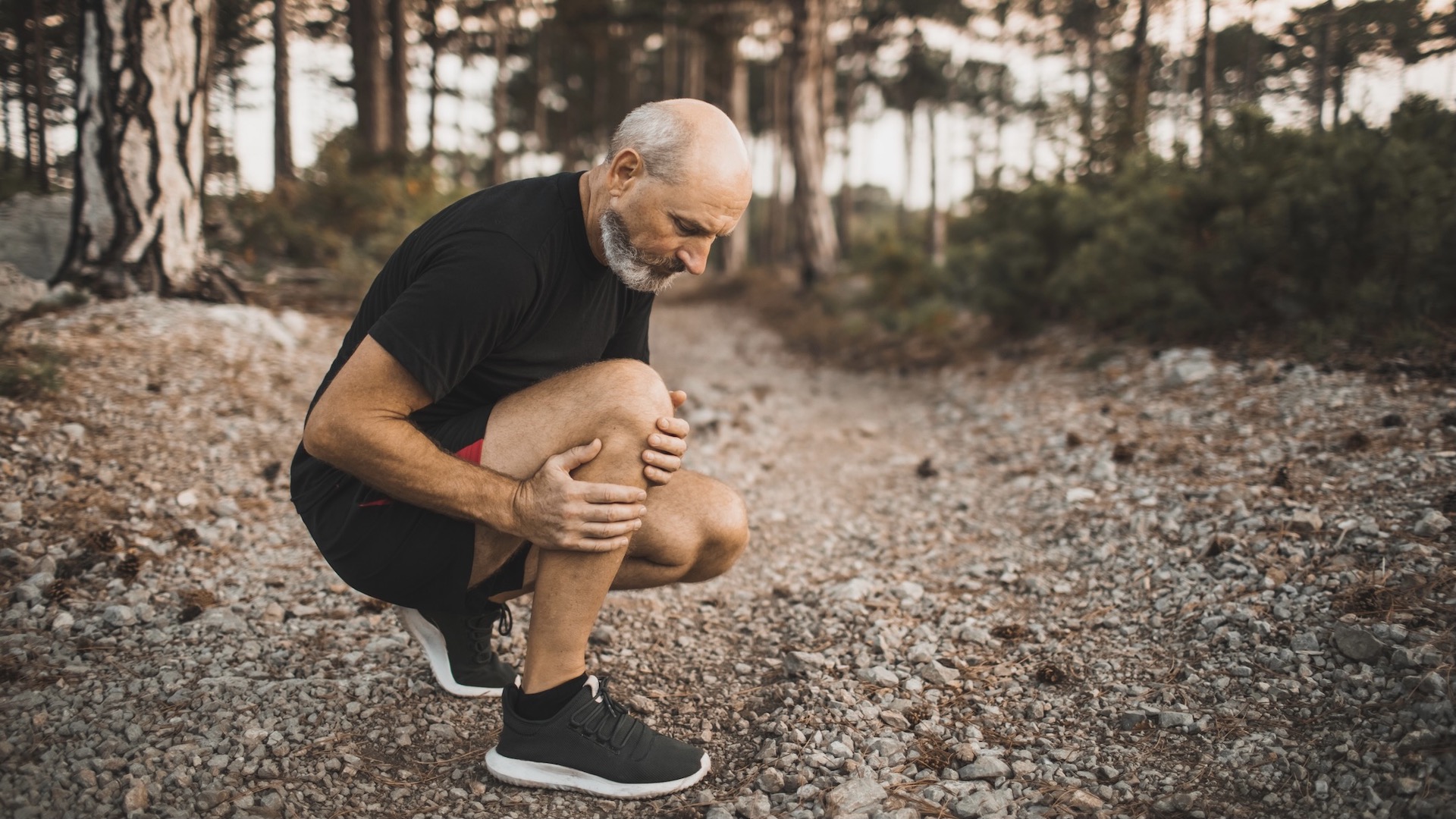Is running bad for your knees? We ask the experts
Expert opinion on whether runners should be worried about their joints – and how to avoid knee pain

Like most forms of exercise, running can come with the risk of injury. It's commonly believed that hitting the roads and trails causes arthritis in the joints, but is running bad for your knees? Let's take a look at the potential injuries and niggles and how you can aim to prevent injury.
First off, it's worth considering knees and arthritis. A study on experienced marathon runners assessed knees before and after a 20km run. The researchers looked at MRI scans immediately after finishing the run and an hour after the run. The MRI taken immediately after the 20km showed the volume of cartilage – the thin layer that covers bone that provides shock absorption – in the patella (knee cap) and the top of tibia (shinbone) had decreased due to the impact of running.
But the MRI scan an hour later showed the volume had pretty much returned to the pre-run level. So as the authors of the study concluded: “The cartilage is able to adapt well to loads caused by running and has the ability to recover changes due to repeated loading."
Common running knee injuries
Christian Allen, a running fitness expert and product trainer at Runners Need, reveals that there are some common knee injuries caused by running, including runner’s knee, bursitis and iliotibial (IT) band syndrome.
Patellofemoral pain syndrome – also called runner’s knee – usually causes pain in the front, or around, the knee and happens when the kneecap and the thigh bone rub together and cause irritation.
IT band syndrome occurs when the IT band, which is a tendon that stretches from hip to your knee, tightens. It can cause pain in your outer knee.
Meanwhile, bursitis is an inflammation issue. Our joints contain small fluid-filled sacs called bursa. Sometimes these sacs become inflamed, and this is known as bursitis. This injury can cause sore, tender knees that are painful when pressed on.
All the latest inspiration, tips and guides to help you plan your next Advnture!
A study by the Division of Sports Medicine at the University of British Columbia, which looked at reports on 4,173 running injuries seen on referral over a four-year period at a sports medicine clinic, found that the knee was the most common site of injury, with patellofemoral pain syndrome the most common overall diagnosis, although there were significant differences between training groups – recreational, marathon, or middle distance runners – for both injury site and diagnosis.
Research carried out at La Trobe University in Australia came to the same conclusion, and the writers go further to suggest that – contrary to popular belief – running is not bad for your knees, and can actually be good for your joints.

So is running bad for your knees?
Expert opinion is that running is good for you and, specifically, running isn’t bad for your knees. “It’s not the action of running that cause injures but usually because of poor form, bad kit or running on surfaces that are too hard," Christian Allen says.
“In fact, the science shows that running is beneficial for your knees in the long run. One study compared a group of long-distance runners and non-runners over the space of 20 years. Twenty per cent of the runners showed signs of osteoarthritis, while 32 per cent of non-runners showed signs of the condition.”

How do I know if running is affecting my knees?
Tell-tale signs that your running is affecting you knees includes any sort of pain that originates in the knee. “The pain could be sharp or dull, long-lasting or short-lived," Allen says.
“Other signs include a shaky, weak knee when walking or running, or a clicking noise when bending your knee. These can all be signs of the common injuries such as runner’s knee, IT band syndrome and bursitis, but there could be other underlying causes and if you have any persistent symptoms you should see your GP or physio.”
How to avoid knee injuries
There are certain things you can do to prevent the likelihood of injuring your knees while running. “First off, make sure you’re wearing the right running shoes," Allen says. "Running footwear is your most important piece of kit and its important you find the right pair to match your unique running style. Also make sure you head along to a reputable store for a gait analysis.
“It’s also important to make sure you stretch before and after every run. Traditional, static stretches, aren’t as good as dynamic stretches, which involve moving your body in a similar manner to that when running.
“Finally, don’t push yourself too hard. Your body needs time to adjust to an increase in mileage and it’s recommended you only up your distance by 10 per cent a week."
It's well known that running is generally good for our physical and mental health and the exercise doesn't specifically cause knee injuries, but it's important to follow expert guidance to avoid issues arising from inadequate footwear, poor gait and over-training.
- Trail running vs road running: the pros and cons of each

Fiona Russell is a widely published adventure journalist and blogger, better known as Fiona Outdoors. She is based in Scotland and is an all-round outdoors enthusiast with favorite activities including trail running, mountain walking, mountain biking, road cycling, triathlon and skiing (both downhill and backcountry). Aside from her own adventures, Fiona's biggest aim is to inspire others to enjoy getting outside and exploring, especially through her writing. She is also rarely seen without a running skort! Find out more at Fiona Outdoors.
